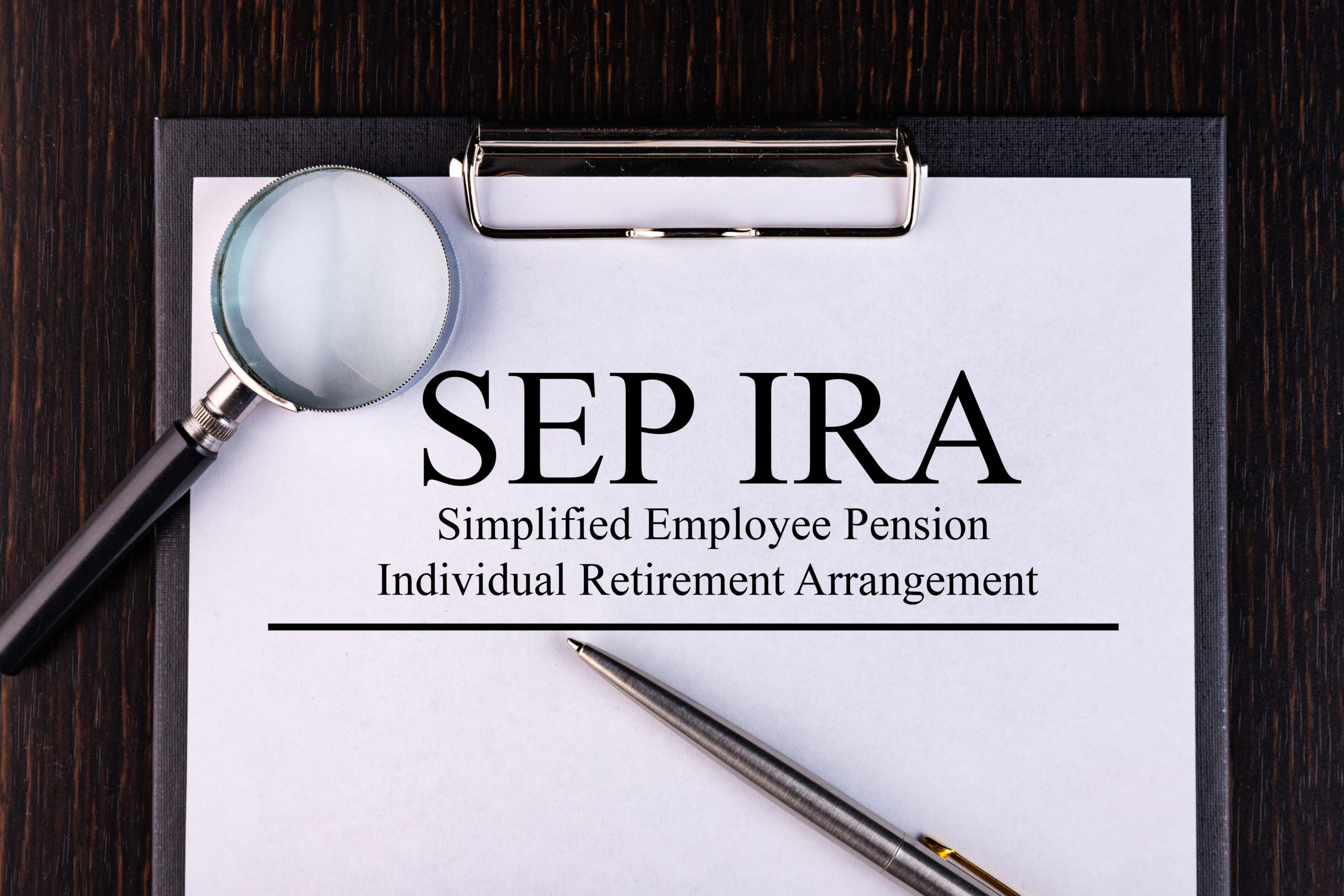![]()
Tax-Saving Tips for Business Owners Part 4
Two Retirement Solutions to Consider – SEP and Simple IRAs
Are you missing opportunities, or are you making the most of what’s available regarding tax savings and retirement? In this issue of our continuing series with tips for business owners to reduce taxes with company retirement plans, we will dissect SEP and SIMPLE IRAs – two retirement solutions that offer tax advantages and ease of management. Let’s see how either of these plans could elevate your financial strategy.
As a business owner, your time is most valuable. With this in mind, I want to focus on retirement plans that are not only beneficial but also easy to set up and maintain –SEP and SIMPLE IRAs.

![]()
SEP IRA: Maximizing Employer Benefits
Before we dive into the specifics of the SEP IRA, I want to highlight one of its most notable benefits – its high contribution limit. This option is especially advantageous for business owners, as it enables you to significantly increase your retirement savings. If you find yourself looking to expedite your retirement contributions later in your career, a SEP IRA is a powerful tool. It allows you to put away more money for retirement than many other retirement plans, providing a meaningful boost to your retirement savings. And remember, more contributions don’t just mean a larger retirement nest egg; they also translate into larger tax deductions, providing a double benefit to savvy business owners. Now, let’s delve deeper into the mechanics of a SEP IRA and how it can be a boon for your tax strategy.
A SEP IRA is primarily employer funded. For you, the business owner, this means every dollar you contribute is tax-deductible. The high contribution limit – up to 25% of an employee’s compensation or $66,000, whichever is less (the rates as of 2023) could lead to substantial tax savings. For instance, if you’re in the 37% federal tax bracket and make the maximum contribution, you could save up to $22,570 per participant in federal taxes.
Besides the tax advantages, SEP IRAs are appreciated for their ease of setup and management. There’s no complex paperwork, and the annual operating costs are low. Flexibility is another attractive benefit, as you can adjust your contributions based on your business’s profitability each year.
Now, let’s turn our attention to the SIMPLE, or Savings Incentive Match Plan for Employees.
![]()
SIMPLE IRA: Simplifying Tax Savings for Employers
A SIMPLE IRA offers a two-fold advantage. Employees contribute to their retirement, and you, as an employer, can match these contributions up to a limit. This shared responsibility can lessen your financial burden while still offering tax benefits.
The employer matching limits for a SIMPLE IRA are:
3% Matching: The most common form of employer contribution in a SIMPLE IRA plan is to match each employee’s contribution dollar for dollar up to 3% of the employee’s compensation.
2% Non-Elective Contribution: Alternatively, an employer can choose to make a nonelective contribution of 2% of the employee’s compensation for all eligible employees, regardless of whether the employee elects to make contributions. In this scenario, even if an employee doesn’t contribute to their SIMPLE IRA, they would still receive a contribution equivalent to 2% of their compensation from the employer.
Note that the 3% match can be reduced to as low as 1% in any two out of five years. However, the employer must notify employees within a reasonable period before the 60-day election period for the calendar year.
The limit for employee contributions in 2023 is $15,500, or $19,000 for those over 50. Regarding ease of management, SIMPLE IRAs are as straightforward as their name suggests. Initial setup and annual maintenance are a breeze, and compared to many other retirement plans, SIMPLE IRAs tend to have lower setup costs and ongoing operating expenses. This savings makes them a cost-effective choice for small to midsized businesses seeking to establish an employee retirement plan.
![]()
Summary
Both SEP and SIMPLE IRAs present opportunities for business owners to reduce their tax liabilities, save for retirement, and provide a benefit to their employees. While the SEP IRA might suit those who want to maximize their contributions and tax savings, the SIMPLE IRA could be a better fit for those who prefer a shared responsibility model. Every business is unique, and what works for one company might not work for another. We recommend consulting with a financial advisor or tax professional to tailor the best strategy for your specific needs.
What’s Next?
Stay tuned for our upcoming blog in this series when we will discuss executive bonus plans.

Chris Zeches is a certified financial planner and managing partner at Zeches Wealth Management. Zeches Wealth Management has one singular focus: To financial planning and tax expertise to help multi-generational families and business owners achieve more of what they love. If you have a specific question regarding your situation, please email chris@zecheswealth.com.
![]()
Have A Question?
If you have questions that are specific to your family’s situation, feel free to contact us and we will do what we can to help.